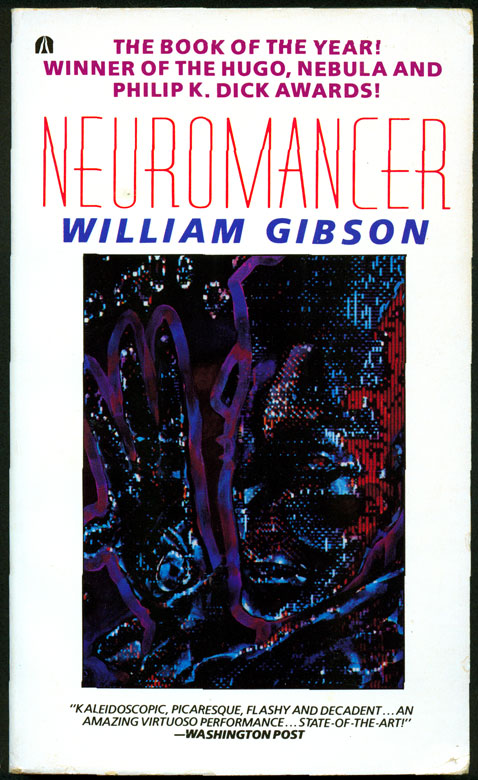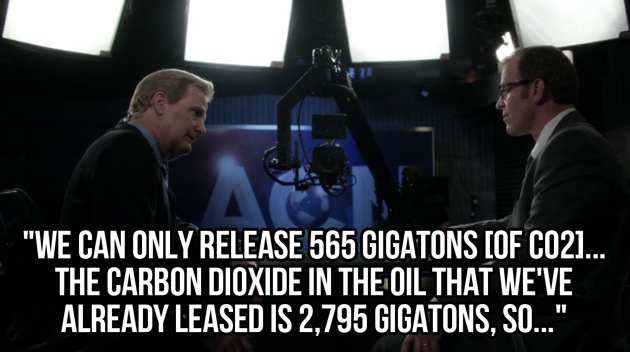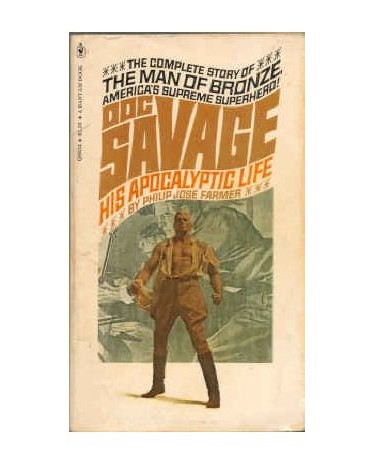
Robert Heinlein spoke of a category of SF stories which answered the question ‘If This Goes On.’ These stories projected trend lines to make informed guesses about The Future. And to a degree, we see Science Fiction doing just that; in the post WW2 era, during what some would call the Pax Americana, and others American Imperialism, we read about futures that extended that post-war suburban dream outwards, enveloping the planet and in due course, the entire galaxy.
What didn’t we see, in the Universes of Asimov, Clarke, and Heinlein, radical extremes of wealth and poverty; a return to anything like feudalism; powerful forces of religious fundamentalism. The Future was American; wealthy, secular if perhaps tinged with a protestant work ethic, but to a degree inclusive, expansionary, and more or less just.
We arrive, in SF’s second generation, at rational secular universes like Larry Niven’s Known Space. There are no poor people in Known space; at least none we ever see or care about; the universe is capitalist but it seems to work; and religion has vanished completely, not stamped out by totalitarianism, but dying a natural death sometime in the unremarked past.
Heinlein, a world traveler, had a shorthand he used for retrograde cultures, cultures which deviated from the plan, cultures which embraced slavery or religious extremism. They were portrayed as quasi-Islamic, but, they were isolated backwaters.
 SF’s New Wave projected trends deemed important and unstoppable in the sixties and seventies into futures both groovy and dystopian. Widespread legal use of Hallucinogens and Cannibis in John Brunner’s Stand on Zanizbar; the dystopias of Ballard and Budrys and Farmer; malthusian overpopulation and peculiar solutions to the same; building cities in The World Inside (or Oath of Fealty). Grim population control in Known Space. The New Wave was still obsessed with If This Goes On; only the “this” has changed, including now a series of new concerns, including ecology, eastern religion, inner space, and, most curiously for SF, modern literary values.
SF’s New Wave projected trends deemed important and unstoppable in the sixties and seventies into futures both groovy and dystopian. Widespread legal use of Hallucinogens and Cannibis in John Brunner’s Stand on Zanizbar; the dystopias of Ballard and Budrys and Farmer; malthusian overpopulation and peculiar solutions to the same; building cities in The World Inside (or Oath of Fealty). Grim population control in Known Space. The New Wave was still obsessed with If This Goes On; only the “this” has changed, including now a series of new concerns, including ecology, eastern religion, inner space, and, most curiously for SF, modern literary values.
Gibson and the cyberpunks liberated us from this idea that we could really, like Hari Seldon in Asimov’s Foundation Series, project any trendline into the future. History had revealed itself a slave to Chaos theory; it was sensitive to initial conditions. In the 80s and 90s we could see so many of the carefully constructed projections of classic and second generation SF crash and burn around us.
The rabbit-from-a-hat world of Moores Law, the failure of the doomsayers of the 60s to predict when a die back of the human race would take place (the Erlich’s of The Population explosion famous bet is an example.) Our failure to move away from fossil fuels, as fossil fuels failed to run out on schedule. The failure of fusion power to emerge as a high-tech, too-cheap-to-meter solution to the problem of growing our energy intensive civilization.
The failure of NASA and the US to push any further into the new frontier. The failure of private enterprise to build on the work of NASA to create any sustainable human presence off the planet. The failure of the perceptron causing the first AI winter. The troubled implementation of genetic engineering in the food supply and the backlash, perhaps more emblematic of fear of corporatism than justified fear of GMO crops.
 So William Gibson, seminal Cyberpunk of Neuromancer fame, famously said, SF is really about the present, and suddenly the If This Goes On thing made sense again. Gibson tells us the apocalypse never arrives, no matter how desperately we might subconsciously wish it. the world gets denser and dirtier and more complex and layered without ever breaking down completely.
So William Gibson, seminal Cyberpunk of Neuromancer fame, famously said, SF is really about the present, and suddenly the If This Goes On thing made sense again. Gibson tells us the apocalypse never arrives, no matter how desperately we might subconsciously wish it. the world gets denser and dirtier and more complex and layered without ever breaking down completely.
So, If this Goes On, really means, What’s Important Now.
This is the reason Science Fiction can speak to an era in a way that no other literature can; focusing on those elements of the present we see as important, as trending, as being worth extrapolating upon, we reveal what it is that is really bothering us about the present; what scares us and what gives us hope. This of course, also dates Science Fiction. Horribly.
Because we’re so wrong about what is really important so much of the time.
The Steampunks take the cyberpunks a step further, and cut extrapolation loose from reason, technology loose from history, allowing us to combine historical elements with whatever technology we see fit to include, with a single caveat. Humans remain at the center of a steampunk world. Steampunk relieves us of the impossible task of staring into the sun which is the Singularity.
Posthuman SF, and I’ve not read enough of it, I confess, has never been and I suspect will never be a popular genre with non-post humans. (Dogs do not read novels about humans.) Posthumanism stands now as a solid barrier between serious science fiction and many beloved tropes of the past; Space Opera; the galactic empire; interstellar travel. It is the reason that Space Opera itself now reeks faintly of steampunk.
At any rate, my sub genre, I think, is the title of this piece, and it’s the continuation of If this Goes on, through What’s Important Now, and I’m calling it, Like Now But More So.
It’s a kind of Steampunk, because modern day elements are exaggerated, without necessarily acknowledging or accepting the push and pull, yin and yang of cultural forces that prevent these exaggerations from becoming reality. The Hunger Games is an example of Like Now But More So.
Like Now But More So ranges from timeless allegory to ephemera to bad polemic.
Having written SF off and on now for 20 years, having read it for 40, I have begun to accept that much of what we do is scrawled hastily in wet sand, speaking not only to a moment in time, but to an imaginary moment in time, fifteen minutes in the future, which is even more elusive, ephemeral, subjective, than traditional serious literature.
I believe in my heart of hearts, in a future which is either apocalyptic or post human. The worlds between these poles now seem to me mostly wishful thinking. But what’s wrong with wishful thinking?
In fact I think we live now in a golden age in which is possible to write and publish and be informed by any and all of these strands of SF to create great stories which find readers in new ways. We hunger for Space Opera, and Cyberpunk and Steampunk, and optimistic futures and dystopians, all of it at once. Nothing is lost, really, anymore. Science fiction permeates the culture, informing it and reflecting it in a thousand tried and true tropes which even those who pretend to disdain SF are totally familiar. Robot uprisings and Big Brother and Star Trekian diversity, Phillip K Dickian mind-fuck, its a Sfnal world we live in.
We live in the future which SF gave us and which SF gets joyfully and humiliatingly wrong, over and over again.
Like Now. Only More so.












